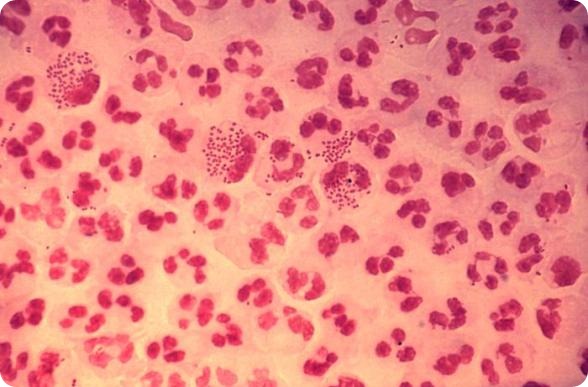Japanese scientists have found a superbug strain of gonorrhea that’s resistant to all available antibiotics. This can pose a threat to public health worldwide, infectious disease experts say.
 The international team identified the highly drug-resistant strain of Neisseria gonorrhoeae — the bacterium that causes the sexually transmitted infection — through genetic analysis. Gonorrhea is one of the most common STIs in the world and can cause infertility, increase HIV transmission, and has profound effects on infants born to infected mothers, including blindness. Left untreated, the disease can be fatal. The strain is called H041 and has extreme resistance to all cephalosporin-class antibiotics, the last remaining drugs still effective in treating gonorrhea.
The international team identified the highly drug-resistant strain of Neisseria gonorrhoeae — the bacterium that causes the sexually transmitted infection — through genetic analysis. Gonorrhea is one of the most common STIs in the world and can cause infertility, increase HIV transmission, and has profound effects on infants born to infected mothers, including blindness. Left untreated, the disease can be fatal. The strain is called H041 and has extreme resistance to all cephalosporin-class antibiotics, the last remaining drugs still effective in treating gonorrhea.
Dr. Magnus Unemo of the Swedish Reference Laboratory for Pathogenic Neisseria, said in a statement who was part of the study said, “This is both an alarming and a predictable discovery. Since antibiotics became the standard treatment for gonorrhea in the 1940s, this bacterium has shown a remarkable capacity to develop resistance mechanisms to all drugs introduced to control it. While it is still too early to assess if this new strain has become widespread, the history of newly emergent resistance in the bacterium suggests that it may spread rapidly unless new drugs and effective treatment programs are developed.” Unemo presented the team’s findings Monday at the International Society for Sexually Transmitted Disease Research meeting in Quebec City.
“Why this is so concerning is that there are no other treatment options besides cephalosporins right now,”" Dr. Kimberly Workowski, an associate professor of medicine at Emory University said. A spokesman for the Public Health Agency of Canada said the federal agency is not aware of any cases of H041 strain in this country.
Dr. Vanessa Allen, a medical microbiologist at the Ontario Agency for Health Protection and Promotion added that this not surprising because the infectious agent is known to exchange genetic material with other organisms in the genital tract, which helps confer resistance. “And, in fact, we’re now on the fifth or six class of antimicrobials,” Allen said Monday from Quebec City, where she was attending the conference. With no alternative drugs in the pharmaceutical pipeline, “the concern is that we’ll go to potentially an era where it will be like the pre-antibiotic era,” she said. “So people again will see consequences of chronic gonorrhea infection that are associated with neonatal infections, infertility and those things.” For now, treatment should include cephalosporins and the antibiotic azithromycin, while the CDC and National Institutes of Health work on new drugs.